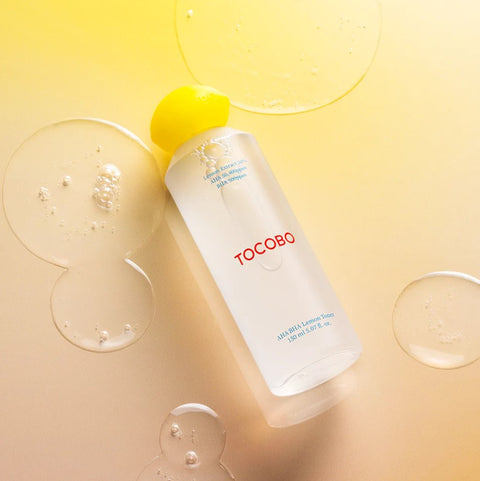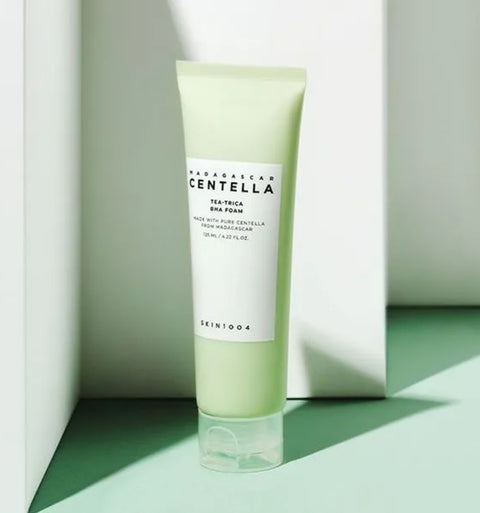Acne is a long-term inflammatory disease of the sebaceous hair follicle unit, which occurs most commonly on the face, chest, upper arms and upper back. Acne is therefore a skin disease that causes various changes to the skin, such as open comedones (blackheads), closed comedones (whiteheads ro blockages), red inflamed pimples caused by a bacterium (Cutibacterium acnes), which may develop into a wet pimple as the infection progresses. In severe forms of acne, very painful pustules can also appear on the skin. Individual pimples and impurities are therefore not necessarily acne.
Acne most often breaks out in adolescence, but acne can also break out later. Later, acne can break out due to, for example, menopause, pregnancy or other hormonal changes. Acne is caused by, among other things, increased sebum production, blockage of the skin, a changed bacterial strain in the sebaceous gland and an inflammatory reaction in the hair follicle and in the skin surrounding the sebaceous gland.
The onset of acne and its severity are greatly influenced by genes and lifestyle such as diet, stress and hormonal activity. Acne doesn't appear in a day or a week because of overindulgence or, for example, starting a new skin care product.

Types of acne
There are different types of acne and the most common ones are comedoacne, wet pimple or "regular acne" and cystic acne.
In comedoacne, only blackheads appear on the skin and there can be a lot of them, especially in the T-zone, i.e. on the forehead, nose and chin. In comedoacne, whiteheads can also appear on the skin, but they are not inflamed and painful.
Pimple/regular acne is the most common of all types of acne. It has both blackheads and whiteheads as well as inflamed pimples.
Cystic acne causes painful and raised nodules/cysts on the skin, which can be very extensive under the surface of the skin.

Acne treatment
Acne can be treated both cosmetically and medicinally. With the right kind of skin care products, you can soothe and control the skin inflammation caused by acne. In the treatment of acne, it is also important to keep the face clean and moisturized, because sebum is naturally removed from the skin more easily when the surface of the skin is moisturized, flexible and soft.
Even if the acne skin gets really oily during the day, the skin still needs moisturizing and that's why it's good to choose a light moisturizing cream suitable for the problem skin. It is also important to protect acne-prone skin from the sun, because the sun's UV radiation darkens the scars left by pimples. The skin also thickens when it protects itself against UV radiation, and as the skin thickens, more comedones form on the skin.
Good ingredients for acne skin include, for example:
- Tea tree: cleanses the skin and suppresses the appearance of pimples and impurities
- Centella Asiatica: soothes irritated skin and skin inflammations
- Retinol: regenerates the skin effectively and helps with acne treatment
- Salicylic acid: gently exfoliates the skin and keeps the pores clean

Product recommendations for acne skin
First step of double cleansing: Hwarang' Bellflower Cleansing Balm or Ma:nyo Factory Pure Cleansing Oil
The second step of double cleansing: Anua Heartleaf Quercetinol Pore Deep Cleansing Foam
Toner: Some By Mi AHA BHA PHA 30 Days Miracle Toner
Ampoule: SKIN1004 Centella Tea-Trica Relief Ampoule
Moisturizer: Some By Mi AHA BHA PHA 30 Days Miracle Cream
Sunscreen: SKIN1004 Centella Hyalu-Cica Water-Fit Sun Serum or Purito Seoul Daily Soft Touch Sunscreen
To treat body acne: Some By Mi AHA BHA PHA 30 Days Miracle Acne Clear Body Cleanser
Although acne is one of the most common skin problems, it can still cause insecurity. Pimples and redness of the skin can be covered with concealers if desired. Concealers and other make-up products are not harmful to the skin, as long as the make-up is carefully removed from the skin by double cleansing the face.
Browse base makeup products here .
If, despite skin care products suitable for acne skin, the pimples and the skin do not calm down and the acne is very painful, the treatment should be done by a dermatologist. However, skin care is very important in connection with drug treatment, but it is worth finding out whether all products are suitable for use with drug treatment at the same time. Many acne medications dry out the skin strongly, so it is often necessary to change some products to gentler and more moisturizing ones when starting the medication.
Tip! If you are thinking about products suitable for your skin, our beautician will help you choose the right products.

![[About Me] Rice Makgeolli Cleansing Foam](http://www.yeppo.fi/cdn/shop/files/about-me-rice-makgeolli-cleansing-foam-2.jpg?v=1704326845&width=480)

![[Anua] Peach 70% Niacin Serum Mask](http://www.yeppo.fi/cdn/shop/files/anua-peach-70-niacin-serum-mask-3.jpg?v=1703796396&width=480)





 info@yeppo.fi
info@yeppo.fi
 14 vrk palautusoikeus
14 vrk palautusoikeus
 PCI-DSS Compliant
PCI-DSS Compliant
 PayPal Buyer Protection
PayPal Buyer Protection
 Klarna – Pay Securely
Klarna – Pay Securely